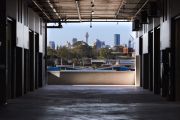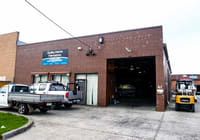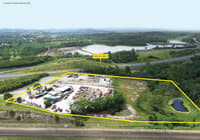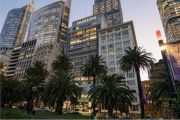
Victoria claims a land advantage in the data centre race
The Victorian government says an abundance of affordable land gives it an edge as states race to secure the next generation of data centres, throwing its support behind a proposal from ASX-listed NextDC to build a $2 billion facility in Melbourne.
The state, playing catch-up to NSW in its number of data centres, wants to establish itself as a hub in a digital economy in which advanced manufacturing, defence and space technologies play an increasing and crucial role.

“This is the door to the third industrial revolution,” Victorian minister for economic growth and jobs, Danny Pearson, told The Australian Financial Review. “It’s like going back to the UK in the 19th century and these guys are building the rail tracks.”
State governments are treading a fine line to balance the growing resource needs of data centres with those of other development sectors, while also positioning themselves to tap the surging demand for digital infrastructure housing the high-performance computers used to generate artificial intelligence.
NextDC will on Thursday announce its plans for a hyper-dense data centre over some 26,000 square metres at the site of the former News Corp-owned Westgate Park Printing Complex in Fishermans Bend, which it acquired in 2023.
The facility is still subject to final design and development approval from the Victorian government. While the so-called M4 facility will account for up to 80 per cent of the $2 billion investment, NextDC will also develop a secure operations centre for customers as well as a training and innovation hub.
In an increasingly fractured world, Australia had an opportunity to serve customers in defence, advanced manufacturing and space industries, NextDC chief executive Craig Scroggie said.
“For every dollar we spend, customers will spend $10,” Scroggie told the Financial Review. “That gives you some insight into the scale of how important it is for us to be the anchor tenant in Fishermans Bend.”
The M4 centre – which Scroggie hopes will receive development approval early next year, and then take 18 months to build – will have liquid cooling systems able to support rack power densities exceeding 1000 kilowatts, positioning them for highly advanced work.
“A decade ago, a standard data centre rack operated at around four kilowatts to eight kilowatts, with high-density racks reaching 30 kilowatts,” Scroggie said.
This had now risen to 130 kilowatts per rack, was on track to increase to 600 kilowatts, and then go over 1000 kilowatts in the next few years, he said.
The more powerful the computer, the more energy it consumes. The increasing scale of data centre demands for water and power are creating new challenges for authorities, Scroggie said. “We are finding planning issues that haven’t been discovered before.”
The M4 data centre will meet government and defence-grade standards known by acronyms such as PSPF, SCEC, HCF, and DISP, making it able to support the supercomputer demands of global defence contractors such as US-based Boeing and Italy-based Leonardo.
Scroggie declined to identify likely individual clients. The University of Melbourne and RMIT University are partners in the planned precinct.
“I can see the size of the prize,” Pearson said. “The prize is being a world leader in AI, technology and innovation. I hope in 25 years’ time Melbourne will be seen in the same way as Silicon Valley.”
Scroggie said he wanted it sooner. “I hope that will be in five years!”
Data centre investment in Australia is on a tear, with the country’s so-called deployable capacity of 1350 megawatts last year projected to more than double to 3100 megawatts by 2030 – for an investment total of $26 billion – according to a report commissioned by the five largest operators AirTrunk, Amazon Web Services, CDC Data Centres, Microsoft, and NextDC.
A report by commercial real estate agency Knight Frank in April said Australia was the second top investment location for capital in data centres in 2024 with $6.7 billion, behind the United States at $14.6 billion.
This was destined to grow further, following export controls imposed by the US at the start of this year limiting the export of powerful Nvidia AI chips to a handful of countries including Australia, Knight Frank said.
“As one of only four nations in the Asia-Pacific region exempt from any export restrictions, Australia now holds a strategic advantage in the AI race.”
Scroggie said Australia’s membership of the Five Eyes intelligence-sharing network with the US gave it an extra advantage that would lure customers in AI-using industries.
Figures from consultancy Data Centre Map showed Sydney dominates the Australian network, accounting for 87 of the country’s 258 data centres. Melbourne has 50, followed by Brisbane (23), Perth (21), Canberra (20) and Adelaide (21).
Victoria was now playing catch-up, the Knight Frank report said.
“Melbourne is rising as a key data centre hub as power availability becomes increasingly difficult in Sydney and land scarcity intensifies,” it said. “As AI adoption continues to reshape infrastructure needs, Melbourne is rapidly transforming into a critical destination for next-generation digital infrastructure in APAC.”
Pearson said Victoria had advantages over other states. “We have got huge amounts of industrial-zoned land that’s relatively affordable compared with other jurisdictions.”
He declined to say if the state was in a race with NSW, however. “What NSW does is for NSW. What I can say here is this is our moment.”











